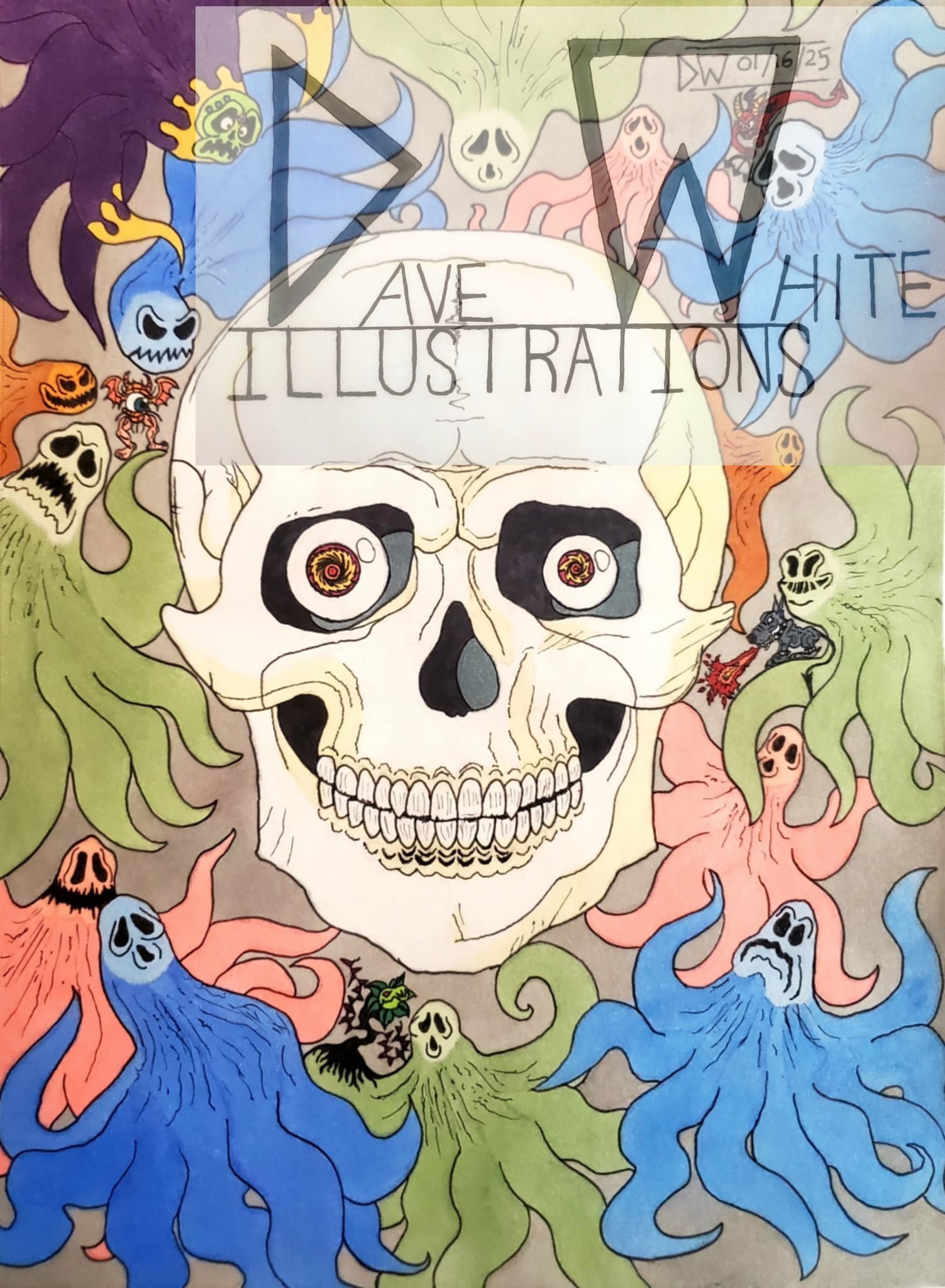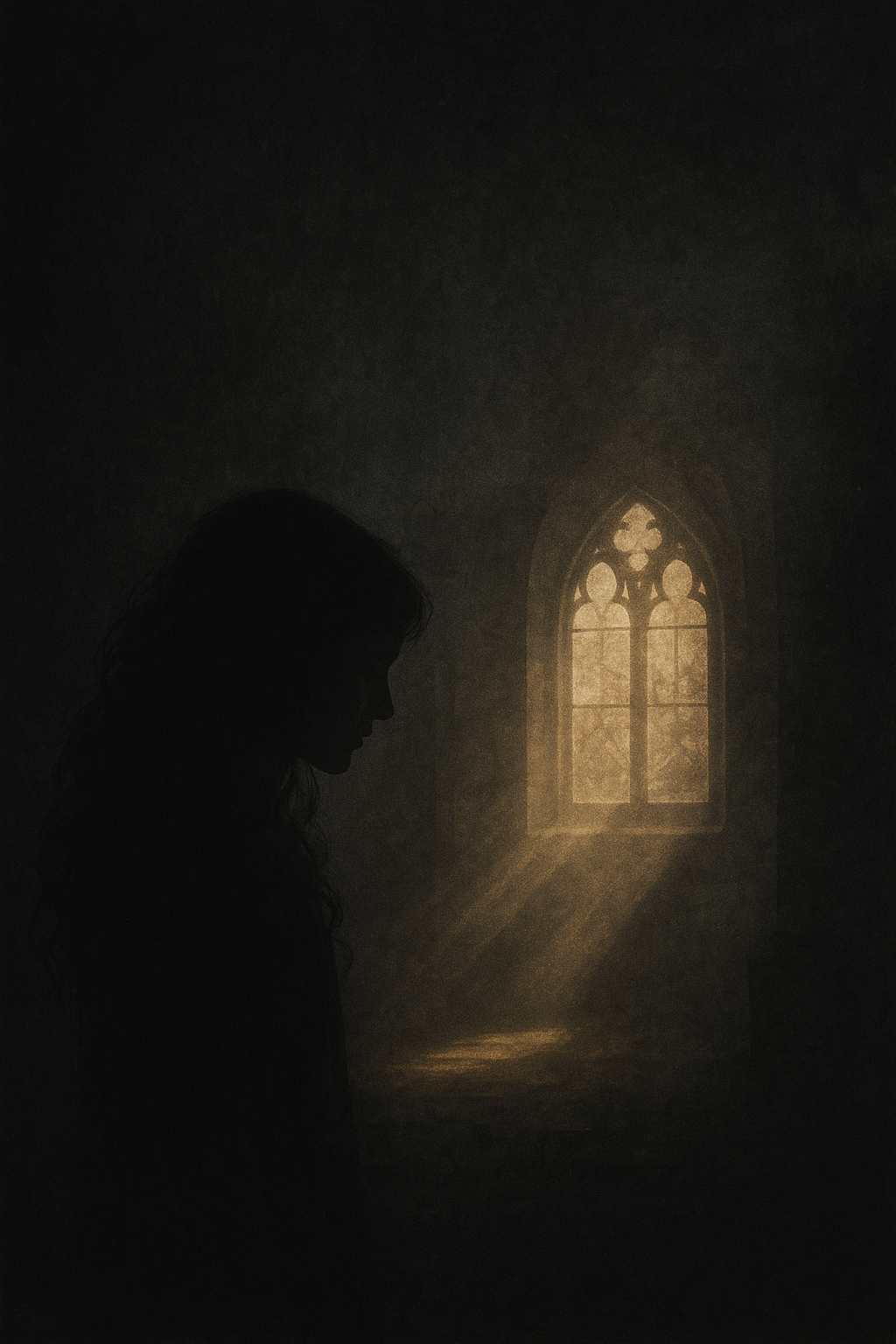White, Dave. Gone Haunted. January 16, 2025, Dave White Illustrations.
Enough with the glass analogies—I’m through.
Your sharp words, an apology overdue.
Even now, I’m yelling at ghosts,
But it’s you who made me hate me the most.
I hate the rocks I carry for you,
The heavy stones you always threw.
You used them to smash me into pieces,
Not broken—no, that word deceives us.
Because broken can mend,
But this? No end.
I’m screaming at smoke,
At shadows that choke.
This isn’t a wound stitched and healed,
It’s a lifetime of scars revealed.
It’s surgery, piecing together the seams,
What I was supposed to be in my dreams.
I’m soaked, naked, under the rain,
Drenched in your memory, consumed by the pain.
It falls predictably, each drop the same—
But what drowns me most is hearing your name.
I keep saying “you,” but who do I mean?
A monster, a shadow, a thought obscene.
A collection of mementos colored by pain,
Taking up space in my fragile brain.
You’re the ghost I yell at in the night,
A specter of wrongs that dims my light.
You’re the echo, the weight I bear,
The reason I’m trapped in this endless despair.
But even ghosts can fade away,
Their power dims with the light of day.
And though your stones still bruise my skin,
One day I’ll find the strength within.
To stop yelling at ghosts,
To silence your name,
To reclaim my soul,
To extinguish your flame.




Leave a Reply